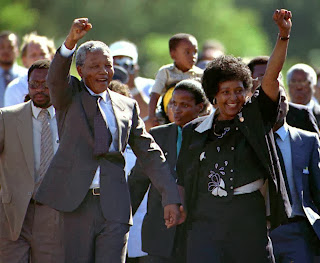To build castles in Spain: to daydream or make plans that will never come true (Oxford dictionaries)
In the same way we are interested in the language and culture of English speaking countries, there is a longtime tradition of Hispanic studies in the USA and in the UK.
We can remember the cooperation of the International Brigades with the Republican cause during the Spanish Civl War and bear in mind that numerous intellectuals went to the USA in exile after the civil war to teach at American universities.
We can remember the cooperation of the International Brigades with the Republican cause during the Spanish Civl War and bear in mind that numerous intellectuals went to the USA in exile after the civil war to teach at American universities.
Upon the death of former Prime Minister Adolfo Suárez, historian Paul Preston has been asked to write his obituary for The Guardian. This is a good excuse to devote some lines to the cultural contact between Spain and Anglo-Saxon countries.
Paul Preston (Liverpool 1946) is a specialist in the Spanish Civil War and is the author of the biographies of General Franco and King Juan Carlos.
Other famous Anglo-Saxon historians are Ian Gibson (Dublin,1939), famous for his biographies of Lorca, Dalí, Buñuel and Machado; Gabriel Jackson (New York, 1921), who lived in Barcelona for 26 years and is an authority on the Second Republic and the Civil War; Hugh Thomas (Windsor, 1931), famous for his studies on Spain's Golden Age, the discovery of America, the conquest of Mexico, and the slave trade; and Raymond Carr (Bath,1919), a specialist in Franco's dictatorship and the following period.
The fascination with Spain has a long tradition, dating back to the 19th century or during the Spanish Civil War. We can mention here the travel book The Bible in Spain, subtitled "or the Journey, Adventures, and Imprisonment of an Englishman in an
Attempt to Circulate the Scriptures in the Peninsula" written in England by George Borrow (1843). Or Hemingway's For Whom the Bell Tolls (1940) and Homage to Catalonia by George Orwell.(1938).
I would like to finish this entry with a special mention to the American author, essayist and journalist Barbara Probst Solomon (New York, 1928). She was one of the protagonists of a strange story which was the origin of Fernando Colomo's movie Los años bárbaros (1989): in 1948, Solomon and Barbara Mailer (the sister of the writer Norman Mailer) aided Paco Benet in the rescue of
two Spanish students being held in the Franco gulag near Madrid, where they were
used as slave labour to build Francisco Franco's future tomb, The Valley
of the Fallen/Valle de los Caídos. One of the
students, Nicolas Sanchez Albornoz was the son of the historian Claudio
Sanchez Albornoz, the president of the Spanish Republic in Exile. Solomon
and Paco Benet, brother of the Madrid novelist Juan Benet, spent five years together, mainly in
Paris, where Benet and Solomon edited the resistance magazine Peninsula
together. She was a correspondent for El País and has been awarded the 25th Francisco Cerecedo Prize by the Association of
European Journalists in Spain.










